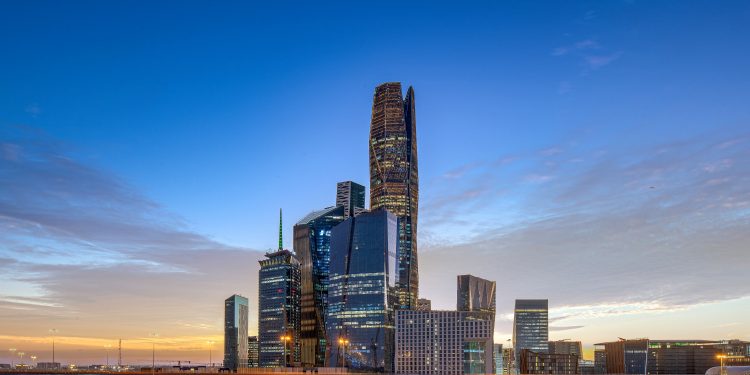Saudi Arabia’s non-oil private sector continued to expand in March, driven by increased orders due to lower prices and better economic conditions. Although growth slowed from January’s peak, the Purchasing Managers’ Index (PMI) still indicated robust activity at 58.1, down slightly from 58.4 in February.
The subindex for new orders fell to 63.2, down from February’s high of 65.4. Despite this deceleration, businesses increased stockpiling in anticipation of ongoing sales growth.
Employment rose as companies sought to enhance capacity, marking the strongest quarter for job creation in over a decade. Riyad Bank’s chief economist, Naif Al-Ghaith, noted that improved conditions are supported by government initiatives to strengthen regulatory frameworks and infrastructure, encouraging private and foreign investments.
As part of the Vision 2030 plan, Saudi Arabia aims to boost the non-oil sector’s GDP contribution to 65% by 2030, currently over 50%. In March, input cost inflation hit a four-year low, leading companies to lower prices for the first time in six months amidst strong competition.
Work backlogs increased significantly, the highest since August 2018, due to rising orders and limited capacity. However, there was a noticeable decline in business activity expectations for the coming year within the non-oil sector.


